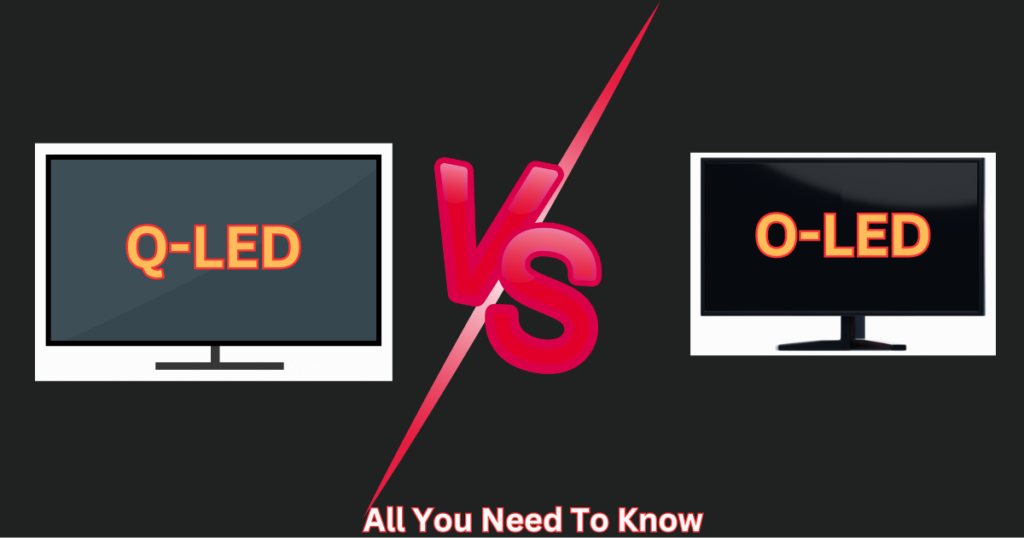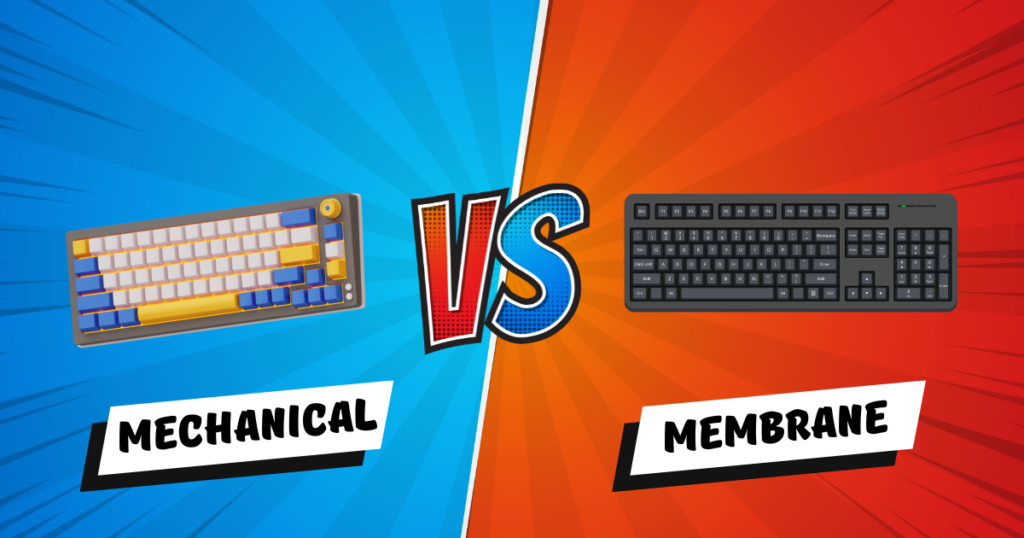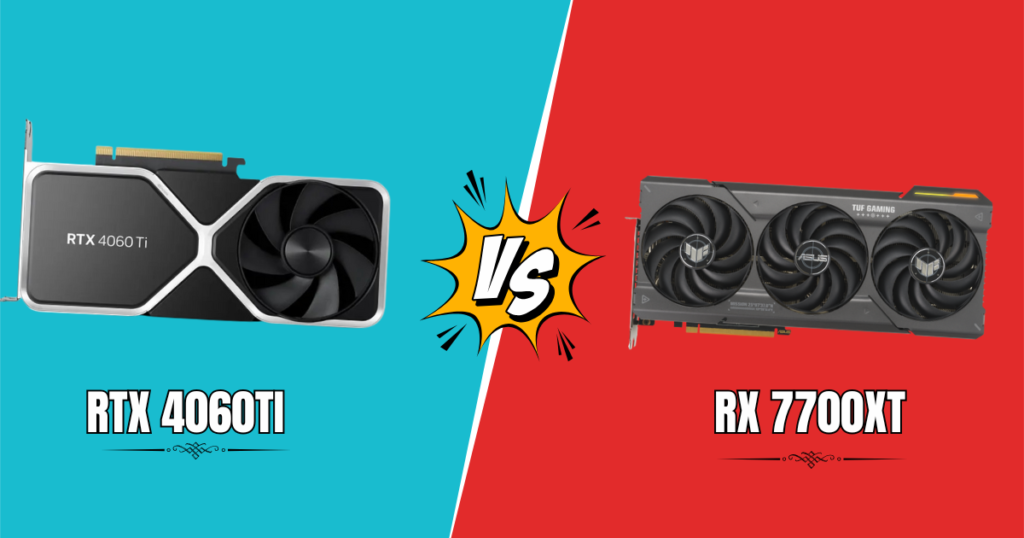In the ever-evolving world of television technology, two names frequently come up: OLED and QLED. Both have gained significant attention from Gamers and casual viewers alike, but what truly sets them apart? In this article, I will explore the key differences and features of OLED vs QLED to help you make a decision in 2025.

Understanding the Basics of OLED vs QLED :
Before diving into the differences, let’s start with a brief overview of what OLED and QLED. Both technologies offer unique advantages and drawbacks, which can influence your viewing experience.
In my opinion, understanding these basics is crucial before comparing their features. Each technology has its strengths that cater to different viewing preferences and environments
Picture Quality: OLED vs QLED
One of the most significant aspects when comparing OLED vs QLED is picture quality. This is largely due to their ability to turn off individual pixels, resulting in true blacks. For instance, when you watch a scene set in the dark, you can appreciate how deep the blacks appear on an OLED screen.
On the other hand, QLED TVs, developed by Samsung, utilize a backlight along with quantum dots to enhance color and brightness. While QLED can achieve higher brightness levels, which is beneficial in well-lit rooms, it may struggle to deliver the same level of contrast as OLED. I think this difference is essential to consider based on your viewing environment. If you frequently watch TV in a dimly lit space, OLED might be a better option.
Brightness and HDR Performance: Comparing OLED vs QLED:
When it comes to HDR (High Dynamic Range) performance, both OLED and QLED have their strengths. QLED TVs excel in brightness, which allows them to produce striking HDR visuals. In bright rooms, the vibrant colors can pop, creating a more immersive experience. For example, during a sunny scene in a movie, the colors on a QLED screen can be incredibly vibrant, drawing you into the action.
Conversely, OLEDs tend to have a more limited brightness range. However, the deep blacks they offer can enhance the overall HDR experience, particularly in darker scenes. I believe it’s important to assess how much ambient light you have in your viewing area when considering this aspect of OLED vs QLED.

Key Differences Between OLED vs QLED :
Here are the main differences between OLED and QLED that can affect your decision:
1. Contrast :
OLED delivers true blacks by turning off individual pixels, while QLED relies on backlighting, which may not achieve the same level of deep blacks.
2. Brightness:
QLED TVs are brighter and better suited for well-lit rooms, whereas OLEDs excel in darker environments with their rich contrast.
3. Viewing Angles:
OLED has superior viewing angles, maintaining picture quality even from the side. When QLEDs are seen at an angle, their color quality may suffer.
4. Color Accuracy:
Both technologies offer great color reproduction, but OLED often has an edge in contrast, giving it a slight advantage in picture vibrancy.
5. Cost:
OLED TVs are typically more expensive, while QLEDs tend to be more affordable and perform well.
Viewing Angles: OLED vs QLED Performance :
Another key difference to note is the viewing angles. OLED screens have superior viewing angles, maintaining color accuracy and contrast even when viewed from the side. This is particularly advantageous for large gatherings or family movie nights, where viewers may not be seated directly in front of the screen. Personally, I appreciate how everyone can enjoy the same viewing experience without worrying about color distortion.
In contrast, QLED TVs can suffer from color degradation when viewed from an angle. This might not be a significant issue if you usually watch TV alone or from a straight-on position, but it’s worth considering if you often host gatherings.

Gaming Performance: OLED vs QLED Monitors for Gamers:
For gamers, both OLED and QLED have their merits. OLEDs boast low input lag and high refresh rates, making them an excellent choice for gaming. Fast reaction times reduce motion blur, which is crucial for games that move quickly. On the flip side, QLEDs offer excellent brightness and vibrant colors, enhancing the gaming experience in bright environments.
In my experience, I think that OLEDs may edge out slightly for gaming due to their superior response times and contrast, but the final decision should be based on personal choice and the games you engage in.
If you’re comparing technology features for other devices, explore the pros and cons in our guide on Mechanical vs Membrane Keyboard.
Lifespan and Burn-in Risk: A Comparison of OLED and QLED :
Here are some key risks and considerations in terms of lifespan and potential screen issues:
Burn-in Risk (OLED):
Burn-in occurs when static images, like logos, remain on the screen for extended periods. While newer OLED models have features to prevent this, it’s still a concern for some.
Longevity (QLED):
QLED TVs typically have a longer lifespan and are less prone to burn-in, making them a better option for long-term usage or for people who frequently leave the TV on for static content like news channels.
I think this is an important consideration, especially for gamers or anyone who frequently watches content with static logos. If you’re worried about burn-in, a QLED might be a safer bet.
Compatibility and Accessories: Improving Your Watching Experience :
When diving into the OLED vs QLED discussion, it’s also important to consider the accessories and compatibility that can enhance your overall viewing experience.
1. SoundBars:
A good soundbar can significantly improve audio quality, making movies and shows more immersive.
2. HDMI Cables:
Ensure you have high-speed HDMI cables that support 4K HDR content to get the best performance from your TV.
3. Streaming Devices:
Consider devices like Roku, Apple TV, or Amazon Fire Stick for seamless streaming and compatibility with both OLED and QLED.
For those looking to enhance their TV audio setup, read our top picks for Best Wireless Bluetooth Speakers for TV
In my experience, investing in quality accessories can elevate your viewing experience significantly. If you’re choosing between OLED vs QLED, be sure to explore compatible accessories that align with your chosen technology.
For those looking to enhance their TV audio setup, read our top picks for Best Wireless Bluetooth Speakers for TV.
Environmental Impact: Sustainability in Display Technologies:
When making a decision about which technology to invest in, it’s important to consider the environmental impact of your choice. Here are some important points :
Material Use:
OLED screens often use organic materials, which can be less harmful to the environment than some materials used in QLED production.
Energy Consumption:
OLED TVs typically use less electricity to display darker settings, which over time can result in energy savings.
I believe that as consumers, we should be conscious of our choices and their long-term effects on the environment. Understanding the sustainability aspects of OLED vs QLED can guide us toward more responsible purchasing decisions.

Cost Considerations: Choosing Between OLED vs QLED:
As with most technologies, price is a significant factor. Generally speaking, OLED TVs cost more than QLED TVs. However, prices have been gradually decreasing, making them more accessible. I’ve noticed that many people are willing to invest in OLED for superior picture quality and viewing experience, while others may prefer the value that QLED offers.
When weighing your options in the OLED vs QLED debate, it’s essential to consider your budget and what features are most important to you. For instance, if you prioritize picture quality and can stretch your budget, an OLED might be worth the investment.
Content Compatibility: How OLED vs QLED Handles Media:
In today’s world of streaming services and digital content, it’s vital to consider how well each technology handles various types of media. Both OLED and QLED TVs support 4K and HDR content, but some users report that OLED displays can sometimes offer a more cinematic experience for movies due to their ability to showcase true blacks and vibrant colors.
However, I believe that the choice may ultimately depend on your viewing habits. If you watch a lot of sports or brightly lit content, QLED could provide a better experience with its brightness and color volume.
A great sound system is essential for home entertainment. Check out our list of Best ATC Speakers for Surround
Best Budget-Friendly OLED & QLED Gaming Monitors for 2025
Choosing between OLED and QLED for gaming?
Competitive gamers need blistering refresh rates (144Hz+) for buttery-smooth action, while immersive single-player fans might prioritize color depth and contrast. Below are two standout monitors that won’t break the bank:
Best OLED Gaming Monitor for 2025
LG UltraGear 27GS95QE-B: Perfect for Dark Room Gaming
OLED’s superior contrast ratios and pixel-level lighting make it a favorite for gamers who crave cinematic visuals. The LG UltraGear 27GS95QE-B delivers:
- 27-inch OLED panel with 1440p clarity.
- 240Hz refresh rate for zero motion blur in fast-paced titles like Call of Duty or Apex Legends.
- Near-instantaneous 0.03ms response time to outpace competitors.
- G-Sync/FreeSync Premium to eliminate screen tearing.
Why It Stands Out: If you’re upgrading from an old TN/IPS panel the leap in contrast and motion clarity will blow you away.
Upgrade Your Setup:
Check Today’s Price for LG UltraGear 27GS95QE-B on Amazon
Best QLED Gaming Monitor for 2025
Gigabyte AORUS FO27Q2 QLED Monitor
Enjoy stunning visuals and high performance with the Gigabyte AORUS QLED monitor. QLED’s quantum-dot tech shines in well-lit rooms, offering vibrant colors and higher peak brightness.
- 27-inch QLED Display: Offers bright, vibrant colors with enhanced contrast.
- 165Hz Refresh Rate: Provides smooth visuals, ideal for fast-paced games.
- 1ms Response Time: Ensures quick responsiveness, enhancing your gaming experience.
- VESA Display HDR 400: Delivers improved brightness and contrast for more lifelike visuals.
Why It Stands Out: For multiplayer marathons in sunny rooms or HDR gaming, this monitor’s brightness and color pop outshine OLED.
Snag the Deal:
See the Gigabyte AORUS QLED Latest Discount on Amazon
Which Should You Buy?
- OLED (LG UltraGear): Ideal for dark rooms, cinematic immersion, and pixel-perfect contrast.
- QLED ( Gigabyte AORUS QLED): Better for bright setups, HDR gaming, and vibrant color lovers.
OLED vs QLED: Quick Comparison Summary:
To summarize the key differences between OLED and QLED, let’s break it down into bullet points:
Picture Quality:
OLED offers better contrast and deeper blacks, while QLED excels in brightness.
Viewing Angles:
When viewed from the side, QLED may exhibit color distortion, whereas OLED offers better viewing angles.
Brightness:
OLED performs best in dimly lit areas, but QLED is more comfortable in bright ones.
Lifespan and Burn-in:
QLED has a longer lifespan and no burn-in risk, while OLED has a shorter lifespan and potential burn-in issues.
Price:
OLED tends to be more expensive, while QLED offers better value for those on a budget.
Final Thoughts on OLED vs QLED :
So, which is better: OLED vs QLED? In the end, the response will rely on your unique requirements and preferences. However, if you’re looking for higher brightness, vibrant colors, and longevity, QLED may be the better choice.
To enhance your viewing experience, consider pairing your display with top-quality sound. See our recommendations for the Best Bluetooth ANC Headphones.
Conclusion :
Both technologies offer unique features and benefits that cater to different viewing experiences. I recommend considering your viewing environment, budget, and content preferences when making your decision. Whether you choose OLED or QLED, both will provide a fantastic viewing experience in 2025 and beyond. Remember to do your research and, if possible, view both types of screens in person before making your final choice. Happy viewing!
In the rapidly advancing world of display technology, staying informed about future innovations and updates will ensure you always make the best choice for your home entertainment setup.
For more in-depth insights on OLED vs. QLED technology, check out this comprehensive guide by CNET, a trusted source for tech reviews and comparisons.



